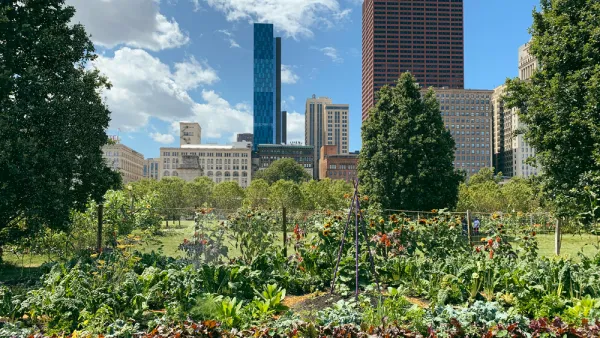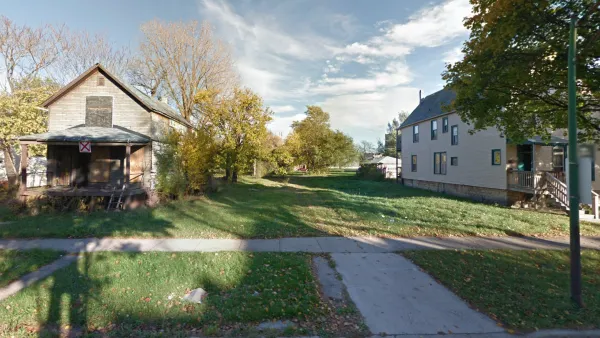Formerly vacant homes are now vacant lots in South Bend, Indiana. Returning the lots to productive uses presents a new kind of challenge for community groups and local officials.
The city of South Bend, Indiana "is pushing to see more vacant lots put to use," according to an article and television report by Hilary Powell.
"The city says it’s taken action on more than 1,000 vacant homes. Now, the empty land is a new challenge. City officials say about 99 percent of empty lots you see don't belong to the city," according to Powell.
The article describes some of the community-based efforts underway in the city. The on air report included with article also shows citizens in action.
FULL STORY: South Bend City looks to put vacant lots to use

Analysis: Cybertruck Fatality Rate Far Exceeds That of Ford Pinto
The Tesla Cybertruck was recalled seven times last year.

National Parks Layoffs Will Cause Communities to Lose Billions
Thousands of essential park workers were laid off this week, just before the busy spring break season.

Retro-silient?: America’s First “Eco-burb,” The Woodlands Turns 50
A master-planned community north of Houston offers lessons on green infrastructure and resilient design, but falls short of its founder’s lofty affordability and walkability goals.

Test News Post 1
This is a summary

Analysis: Cybertruck Fatality Rate Far Exceeds That of Ford Pinto
The Tesla Cybertruck was recalled seven times last year.

Test News Headline 46
Test for the image on the front page.
Urban Design for Planners 1: Software Tools
This six-course series explores essential urban design concepts using open source software and equips planners with the tools they need to participate fully in the urban design process.
Planning for Universal Design
Learn the tools for implementing Universal Design in planning regulations.
EMC Planning Group, Inc.
Planetizen
Planetizen
Mpact (formerly Rail~Volution)
Great Falls Development Authority, Inc.
HUDs Office of Policy Development and Research
NYU Wagner Graduate School of Public Service




























